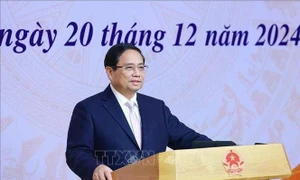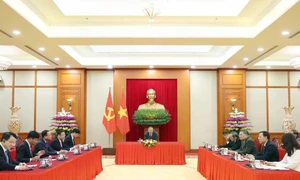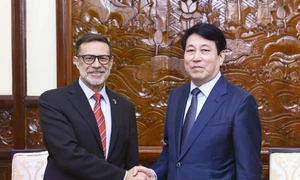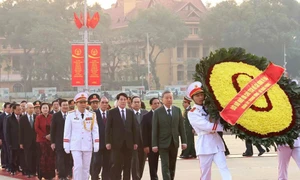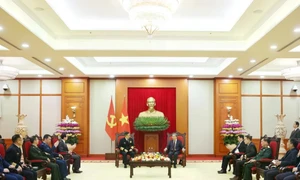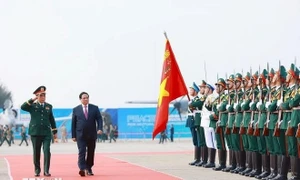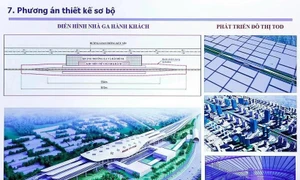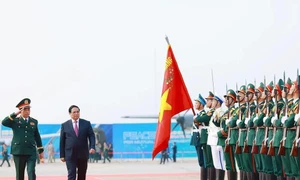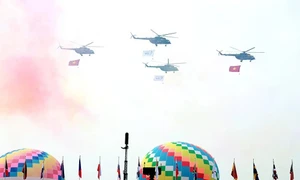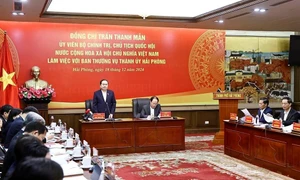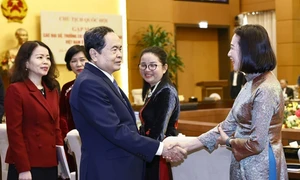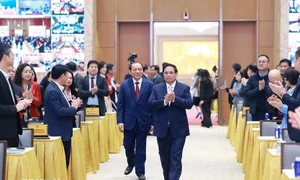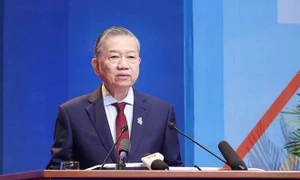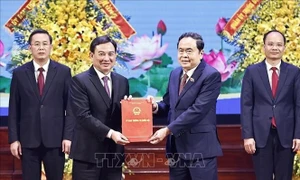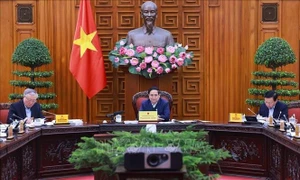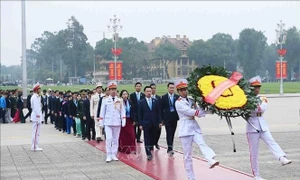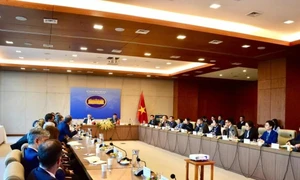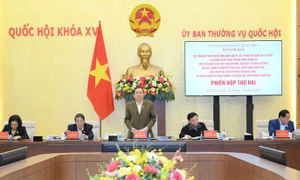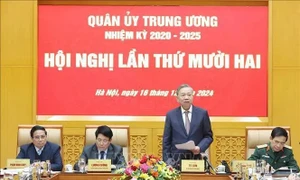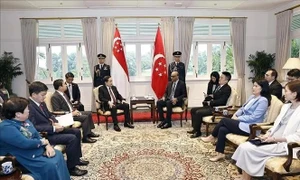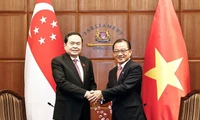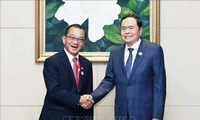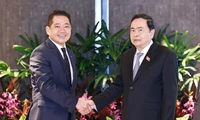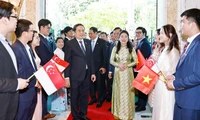
Photo: VNA
The 17th EAS attracted the participation of leaders of ASEAN countries, their partners - China, Japan, the Republic of Korea, Australia, New Zealand, India, Russia and the US, and the ASEAN Secretary-General. The President of the European Council and the Secretary General of the Shanghai Cooperation Organisation (SCO) were invited to present on cooperation in ensuring food and energy security.
Speaking at the event, PM Chinh stressed the need to prioritise promoting economic recovery based on sustainable development, open trade and smooth supply chains. He called on countries to urgently open their markets and create favourable conditions for the flows of goods and services, intensify integration, address disrupted supply chains, contribute to the promotion of multilateralism, and free, fair and inclusive trade so as to bring practical benefits to people.
He suggested the EAS partners support ASEAN's efforts to promote digital and green transformation; develop the circular economy; ensure food, energy and cyber security; and develop sub-regions, including the Mekong Sub-region, to contribute to narrowing the development gap and promoting equitable, sustainable and inclusive development.
ASEAN is willing to act as a trusted intermediary in consultations and dialogues with the EAS partners to seek effective, sustainable and long-term solutions to current security challenges, on the basis of equality and mutual respect, enhanced understanding, trust, dialogue and cooperation.
Sharing the views on regional and international issues, PM Chinh affirmed ASEAN's principled stance on the East Sea; called on countries to work together to build the East Sea into a sea of peace, stability, cooperation and sustainable development, and peacefully settle conflicts; and urged the international community and the EAS countries to support efforts to soon achieve an effective, efficient, fair and reasonable Code of Conduct in the East Sea (COC) for all concerned parties, in accordance with international law and the 1982 United Nations Convention on the Law of the Sea (UNCLOS).

The Vietnamese leader also suggested the EAS partners to back ASEAN in implementing the Five-Point Consensus and assist Myanmar in finding solutions to stabilise the situation.
At the summit, delegates agreed that it is necessary to further promote the EAS’s strategic value and adaptability to more and more challenges arising in the new context.
Noting the progress in the final year of implementing the EAS Action Plan for 2018-2022, they emphasised the urgent need to complete the drafting of a new one for the 2023-2027 period, with priority given to recovery, and green and sustainable development efforts.
They also held that the EAS should promote its role and make effective contributions to efforts to ensure peace, security and stability in the region. The leaders stressed the need to share benefits and uphold the responsibility to ensure peace, stability, security and safety of navigation and aviation in the East Sea, and refrain from activities that increase tensions and complicate the situation; avoid militarisation, the use of and threat to use force; and promote the peaceful settlement of disputes on the basis of international law, including the 1982 UNCLOS. They called on ASEAN and China to fully and effectively implement the Declaration on the Conduct of Parties in the East Sea (DOC) and build an effective and practical COC in accordance with international law, including the 1982 UNCLOS.
Right after the 17th EAS, the leaders attended the closing ceremony of the 40th and 41st ASEAN Summits and Related Summits, and a ceremony to transfer the ASEAN Chairmanship from Cambodia to Indonesia.
On November 13 afternoon, PM Chinh and the Vietnamese delegation left Phnom Penh, successfully concluding their official visit to Cambodia and his attendance at the summits.
